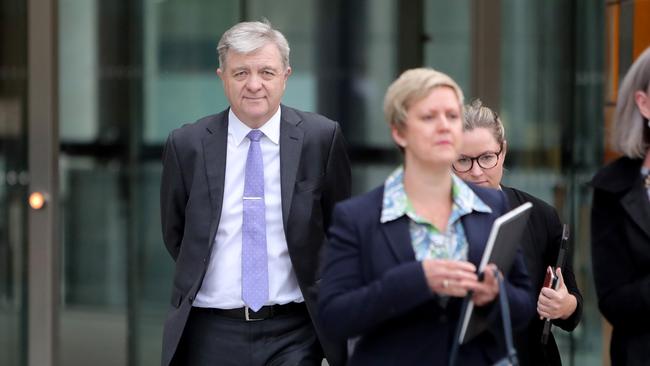Banking Royal Commission: Why bank executives fought so hard to stop inquiry
Scandals brought to light at the banking royal commission reveal why the industry fought the inquiry tooth and nail.

Entering the second phase of hearings we now realise that bad behaviour and a shocking disregard for customers’ interests is not confined to the big banks. AMP, one of the most respected names in the wealth industry has admitted to charging thousand of customers for financial advice services they did not receive ... and then misleading the corporate regulator about it.
Yet, as the inquiry became inevitable at the tail end of last year, senior executives went so far as to suggest the international reputation of Australia Inc would be at risk if we had to endure an expensive regulatory clampdown.
Lindsay Maxsted, the chairman of Westpac, said it would be “dangerous” to have a Royal Commission — “What sort of signal does that send to the rest of the world?” he asked late last year.
Ian Narev, the recently departed CEO of Commonwealth Bank, joined in around the same time with a statement that politicians and jurists too would be admitting the failure of previous inquires if the Royal Commission went ahead.
Well, now we know why these executives were so desperate, the scandals are wider and deeper than anyone might have expected.
The royal commission has proved already no amount of Senate hearings or “internal reviews” — where senior management may loom over timid examinations of misbehaviour — can match a full blown inquiry run by fully empowered legal experts.
Not only do we see how banks and insurers operate but the exceptional legal powers of the commission means we get to see internal correspondence — the very cogs and wheels of the forces that run Australia
It is early days but there are three takeaways for investors from the inquiry so far.
It is no use depending on laws if they are not enforced.
The arrival of so called FoFa (Future of Financial Advice) reforms were seen as a breakthrough, but if they are not implemented thoroughly then they have limited effect.
Higher compliance costs do not lead to better outcomes.
The banks and leading financial institutions constantly complain — with some justification — that compliance costs are onerous. But rising compliance costs have not stopped the litany of scandals unfolding by the day.
You can never be completely protected from bad behaviour or poor advice — active investors will always, to some degree, have to make judgments on their own behalf.
Yes, an inquiry of this depth is an imposition on business — and shareholders will pay for this extended deliberation on banking practice.
But investors may as well face up to facts, sooner or later bad behaviour in listed companies such as the big banks and AMP comes at a price to shareholders — the only question is how long it takes to break out into the public sphere.
The big four banks make up more than 30 per cent of the ASX by market capitalisation. For many retail shareholders who have sought out bank stocks for income the proportion of bank investments in their wider share portfolio may be even higher: As the ASX finished flat, AMP shares slid more than 4 per cent, joining the big four banks stocks as the spectre of higher compliance costs raises its head.














Think back ... just how hard did senior financial executives fight against a royal commission?